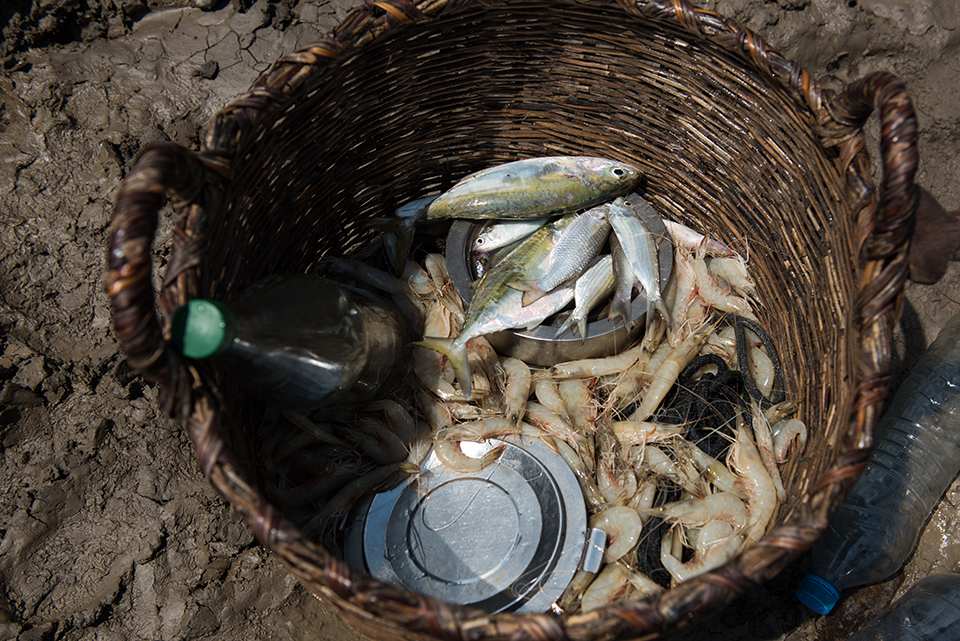The WWF is run at a local level by the following offices...
- WWF Global
- Adria
- Argentina
- Armenia
- AsiaPacific
- Australia
- Austria
- Azerbaijan
- Belgium
- Bhutan
- Bolivia
- Borneo
- Brazil
- Bulgaria
- Cambodia
- Cameroon
- Canada
- Caucasus
- Central African Republic
- Central America
- Central Asia
- Chile
- China
- Colombia
- Croatia
- Democratic Republic of the Congo
- Denmark
- Ecuador
- European Policy Office
- Finland
Our News
The first TMFR-AE contracts in Madagascar, signed in Ambaro Bay.
4 villages of Ambaro Bay including Antenina, Antsatrana, Ankazomborona and Ampasivelona have signed a contract for the Transfer of Fisheries Resources and Aquatic Ecosystems (TMFR-AE).
Fishing and aquaculture are important economic activities. In Madagascar, the fisheries and aquaculture sectors (marine and freshwater fisheries) produced a total of 130.725 tons in 2019 (OEPA Report, November 2020). Approximately 100,000 people make their living from fishing in the Big Island, and fishing is the main source of income for coastal communities such as in Ambaro Bay. 75% of the inhabitants are fishermen in the village of Antenina and about 900 people live from fishing in Ankazomborona.
Unfortunately, our oceans are threatened and the fishery resources with them. The main threats in Ambaro Bay are destructive fishing practices and illegal, unreported and unregulated (IUU) fishing, climate change that affects ecosystems, and massive human migration. All these pressures generate overexploitation and decline of the stocks.

A management transfer, for the empowerment of fishers
In 2018, a fisheries management plan or FMP was developed and implemented in the BATAN area (Bays of Ampasindava, Tsimipaika, Ambaro, and Nosy Be), for proper management of fisheries resources and to address the degradation of mangroves and coral reefs. In the framework of the implementation of this FMP, the Ministry of Fisheries and the Blue Economy, in partnership with the fishing communities and WWF, have proceeded to the implementation of the TGRH-EA in 4 villages: Antenina, Antsatrana, Ankazomborona and Ampasivelona.
The culmination of this process culminates in the ceremonies of ritualization and formalization of the contracts of Transfer of Management of Fisheries Resources and Aquatic Ecosystems (TMFR-AE). This formalization will mark the start and effective implementation of sustainable and responsible management of fisheries resources based on local fisheries governance. The TMFR-AE empowers legally constituted fishermen's associations for the sustainable management and protection of resources (fish, shrimps and crabs) and ecosystems in an area of over 9,000 hectares. This is to improve the standard of living of local communities, increase their sources of income through the services provided by healthy ecosystems, and for future generations to benefit.
For Lalaina Rakotonaivo of WWF Madagascar, "Through this management transfer, fishing communities will play a leading role in the management of fisheries resources and their marine and coastal ecosystems". He also emphasizes that the signing of this TMFR-AE will have a positive impact on their daily lives: "If the resources are well managed, production could only increase in terms of quantity, and especially quality with healthy ecosystems."
The TMFR-AE contract has an initial duration of 2 years. During this period, the fishers will ensure good productivity of the marine ecosystems and also ensure the reduction of fisheries impacts on marine and coastal ecosystems as well as on fish, shrimp and crab stocks. They will carry out sensitizations on the application of the Dina and will monitor the fishing catch. They will make reports on the application of the management measures applied and will evaluate the simplified management plan once a year in collaboration with the Regional Directorate in charge of fisheries.
The establishment of patrol boats or Community Control and Surveillance (CCS) will make it possible to monitor, control and record infractions, and then report to the Fisheries Monitoring Center (FMC). Violations may include the use of prohibited fishing gear, fishing during closed seasons and any form of illegal fishing.
The contract can then be renewed after evaluation of the managers' performance.
In his speech during the ceremonies of ritualization and formalization of the management transfer contracts, the Minister of Fisheries and the Blue Economy, MAHATANTE Tsimanaoraty Paubert, shared his Ministry's wish to see the number of fishers' associations wishing to obtain the management transfer increase. "We have 5,603 kilometers of coastline in Madagascar. The more fishermen who join the TMFR-AE, the better we will be able to manage our marine and aquatic resources sustainably". He also drew attention to the need to work hand in hand for the promotion of the blue economy: "It is necessary that the use of fisheries and aquatic resources is well coordinated and harmonized".
These 4 villages have a significant fishing potential in the Ambaro Bays and the signing of this contract represents the completion of a process supported by WWF, including the structuring of the associations of fishermen delegated by the TGRH-EA and the development of the Simplified Management Plan (SMP). WWF also supported the development of the files to be submitted (management contract, terms of reference, SMP, etc.) and supported the discussion with the local and traditional authorities.